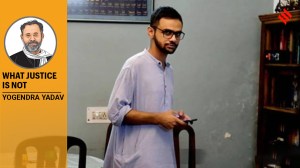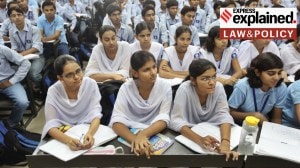Closing the door
The governments case for keeping the CBI out of the RTIs watch is not convincing.
The decision to exclude the Central Bureau of Investigation from the Right to Information Acts ambit has been widely questioned now,the Madras high court has asked for a clearer rationale for the decision,and opinion was visibly divided within the government and even among previous CBI chiefs.
The CBI has been bundled with the National Investigative Agency and the National Intelligence Grid to justify this exemption. However,its not primarily concerned with security and intelligence functions that are explicitly left out of the RTI Act,but with cases of corruption and crime. Though the agency has cloudily argued that it has investigated/ is investigating extremely sensitive and important cases having inter-state/ international ramifications,RTI requests would not have applied to ongoing investigations anyway. The CBI also cites a mosaic theory that seemingly innocuous bits of information can be pieced together to draw large conclusions,and argues that its file-notings are too free-spoken and revealing to be given away. However,other sensitive and elevated offices have submitted to these processes,to no visible harm. The problem is,these arguments stem from a reflexive suspicion of the citizen,which undercuts the very premise of RTI and maximum disclosure. RTI exemptions must be narrowly defined,and ideally they should be case-specific,rather than an entire category being swept out of the public domain. The harm should be demonstrably greater than the public interest in disclosure,and restrictions that serve to shield the official agency from embarrassment or exposure have no place in these exemptions. The one argument that make sense is that the CBI is too understaffed to keep up with a flood of RTI requests but thats a working glitch the government must,and can,fix,instead of using it to draw the curtains over the CBIs work.
And the CBI is in a particularly bad place to make these appeals to keep its affairs private. Despite the 1997 Supreme Court judgment that explicitly reminded it of its autonomy,the agency has often been accused of being the governments obliging little helper,its investigations twist and turn depending on which way the political wind is blowing,rendering its word dangerously suspect.
Photos




- 01
- 02
- 03
- 04
- 05


























